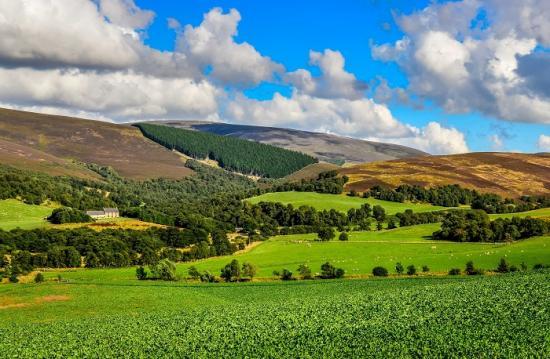Rooting Out The Pros And Cons Of Rewilding
17th February 2022

Concerns about so-called ‘green lairds' buying up agricultural land for carbon sequestration will be discussed at an event led by Scotland’s Rural College (SRUC).
The roundtable event will bring together key stakeholders from across the UK to identify, research and discuss the opportunities and risks arising from large-scale land acquisition for tree planting.
As tree planting displaces agriculture, they will discuss concerns about food sovereignty and the viability of rural communities.
However, they will also look at the benefits of private investment which could help meet net zero and other nature-related targets over the next ten years - as well as increase land values for owner-occupier farmers.
Researchers from the Scottish Environment, Food and Agriculture Research Institutes (SEFARI) and the University of the Highlands and Islands have invited people from all sides of the debate – including representatives from the UK and devolved governments, investors, landowners and community groups – to join a Special Advisory Group.
The project is looking at changes in land use within existing holdings as well as land use change arising from acquisition programmes.
It is focusing on green investment funds seeking to rewild agricultural land of any type, typically with native woodlands - often described as ‘land sparing’ because land is set aside for nature - and comparing these with land sharing approaches, such as those based on peatland and farm soil carbon markets.
Funded by the Scottish Government, the project is chaired by Mark Reed, Professor of Rural Entrepreneurship and Director of the Thriving Natural Capital Challenge Centre at SRUC.
Dr Rob McMorran, Rural Society Researcher at SRUC, led a preliminary evidence review, which collated and assessed evidence from the UK and relevant international studies, for participants to comment on ahead of the roundtable event on 22 February.
He said: "The emergence of markets for carbon and other forms of natural capital has led to increased interest from private investors in ecosystem restoration. Coupled with grants for woodland creation and peatland restoration, this is acting as a driver of land use change across the UK, both on existing holdings and through buyers acquiring land, particularly in Scotland, to undertake rewilding.
“At the same time, we are seeing increasing interest in productive forestry and plantable hill ground from corporate investors due to high timber prices, competitive planting grants and the strong investment performance of forestry.
“These market shifts bring real opportunities for increasing private investment in the environment and for land managers to diversify their income at a time of uncertainty in relation to future agricultural support."
Commenting on the findings of the review, he added: “However, we found that large scale private acquisitions of land for natural capital may also bring real risks, including potentially concentrating the distribution of benefits associated with natural capital and conflicting with a wider policy emphasis on diversifying landownership and increasing opportunities for communities to influence decisions around land use.
“For this reason, how large-scale land acquisitions occur, and the role of natural capital markets in land markets and how they sit alongside public support mechanisms, needs careful consideration to ensure related opportunities are fairly distributed across the land management sector and rural communities.”
Feedback and insights from the roundtable will be integrated into a revised review paper and briefing in March 2022, including evidence-informed recommendations to increase the likelihood that future acquisition schemes lead to benefits for climate, biodiversity, land managers and the wider public interest.
